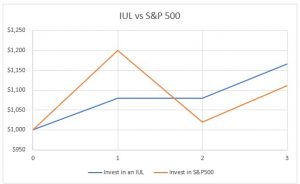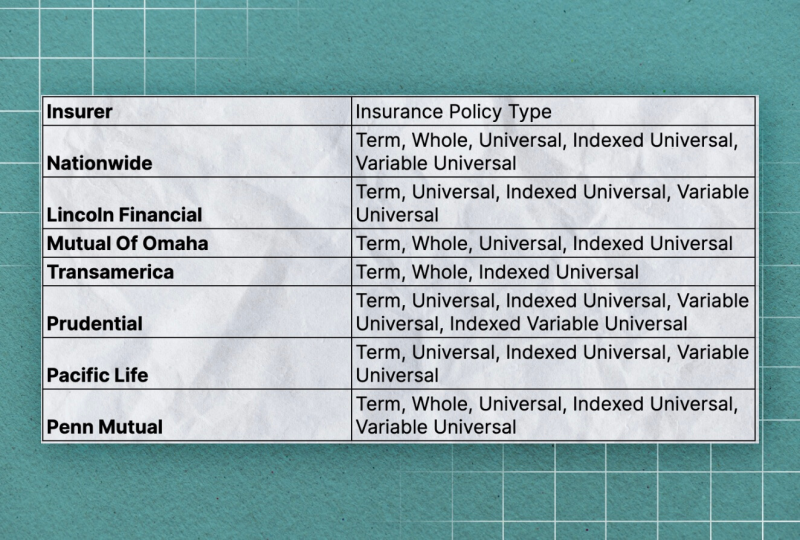All Categories
Featured
Table of Contents
1), usually in an attempt to beat their group standards. This is a straw male argument, and one IUL individuals love to make. Do they compare the IUL to something like the Vanguard Total Amount Securities Market Fund Admiral Show to no tons, an expenditure proportion (EMERGENCY ROOM) of 5 basis points, a turn over ratio of 4.3%, and an exceptional tax-efficient document of distributions? No, they compare it to some terrible proactively handled fund with an 8% tons, a 2% ER, an 80% turn over proportion, and a horrible record of temporary funding gain distributions.
Shared funds frequently make yearly taxable circulations to fund owners, even when the value of their fund has decreased in worth. Shared funds not only call for earnings reporting (and the resulting yearly tax) when the common fund is increasing in worth, however can also enforce income tax obligations in a year when the fund has dropped in value.
That's not just how shared funds function. You can tax-manage the fund, collecting losses and gains in order to minimize taxed circulations to the financiers, but that isn't somehow going to change the reported return of the fund. Just Bernie Madoff types can do that. IULs stay clear of myriad tax obligation traps. The possession of mutual funds may require the common fund proprietor to pay approximated taxes.

IULs are easy to position to ensure that, at the proprietor's death, the recipient is not subject to either revenue or estate tax obligations. The very same tax obligation reduction techniques do not function nearly too with mutual funds. There are various, often costly, tax catches related to the moment trading of shared fund shares, traps that do not put on indexed life insurance policy.
Possibilities aren't really high that you're mosting likely to be subject to the AMT as a result of your mutual fund distributions if you aren't without them. The rest of this one is half-truths at finest. While it is true that there is no earnings tax obligation due to your heirs when they acquire the profits of your IUL policy, it is likewise true that there is no income tax due to your beneficiaries when they acquire a shared fund in a taxed account from you.
Universal Life Problems
There are better means to avoid estate tax obligation issues than acquiring financial investments with low returns. Common funds might create income taxation of Social Safety and security advantages.

The development within the IUL is tax-deferred and might be taken as tax obligation cost-free earnings via finances. The plan proprietor (vs. the mutual fund supervisor) is in control of his or her reportable earnings, therefore enabling them to decrease or perhaps get rid of the taxes of their Social Safety and security advantages. This is excellent.
Right here's another minimal issue. It holds true if you acquire a common fund for state $10 per share simply prior to the distribution day, and it disperses a $0.50 distribution, you are then going to owe taxes (probably 7-10 cents per share) although that you have not yet had any gains.
In the end, it's truly about the after-tax return, not just how much you pay in taxes. You are mosting likely to pay even more in taxes by utilizing a taxable account than if you get life insurance policy. You're additionally most likely going to have more cash after paying those taxes. The record-keeping requirements for owning shared funds are substantially a lot more complicated.
With an IUL, one's documents are kept by the insurer, copies of annual declarations are mailed to the proprietor, and circulations (if any kind of) are totaled and reported at year end. This set is also sort of silly. Obviously you must keep your tax documents in situation of an audit.
Index Whole Life Insurance
All you need to do is push the paper into your tax obligation folder when it shows up in the mail. Rarely a reason to purchase life insurance policy. It resembles this guy has never ever bought a taxable account or something. Shared funds are generally part of a decedent's probated estate.
Furthermore, they undergo the hold-ups and expenditures of probate. The proceeds of the IUL policy, on the other hand, is always a non-probate circulation that passes beyond probate straight to one's called recipients, and is as a result not subject to one's posthumous lenders, undesirable public disclosure, or similar delays and prices.
We covered this set under # 7, however simply to evaluate, if you have a taxed shared fund account, you need to place it in a revocable count on (or perhaps much easier, utilize the Transfer on Fatality classification) to avoid probate. Medicaid disqualification and lifetime revenue. An IUL can provide their owners with a stream of income for their whole life time, regardless of how much time they live.

This is useful when organizing one's events, and transforming assets to revenue prior to a nursing home arrest. Common funds can not be transformed in a similar fashion, and are almost always thought about countable Medicaid assets. This is another foolish one advocating that inadequate individuals (you understand, the ones that require Medicaid, a government program for the inadequate, to spend for their nursing home) should utilize IUL instead of common funds.
Indexed Universal Life Insurance For Retirement
And life insurance policy looks terrible when compared rather versus a retired life account. Second, individuals who have money to buy IUL over and beyond their retirement accounts are mosting likely to have to be horrible at handling money in order to ever before get Medicaid to spend for their assisted living facility costs.
Persistent and incurable illness biker. All policies will certainly allow an owner's simple accessibility to cash money from their plan, usually waiving any type of surrender penalties when such individuals experience a serious ailment, need at-home treatment, or come to be restricted to a nursing home. Shared funds do not give a comparable waiver when contingent deferred sales fees still put on a mutual fund account whose owner needs to sell some shares to money the costs of such a stay.
Index Insurance Company
You get to pay more for that benefit (motorcyclist) with an insurance policy. Indexed universal life insurance policy offers fatality benefits to the recipients of the IUL owners, and neither the proprietor neither the beneficiary can ever before lose money due to a down market.
I absolutely do not need one after I reach financial freedom. Do I desire one? On standard, a purchaser of life insurance coverage pays for the true cost of the life insurance advantage, plus the expenses of the policy, plus the profits of the insurance firm.
Net Payment Cost Index Life Insurance
I'm not completely certain why Mr. Morais included the entire "you can not shed money" again right here as it was covered quite well in # 1. He simply intended to duplicate the best selling point for these things I mean. Again, you don't shed small bucks, however you can shed genuine dollars, along with face significant chance expense because of reduced returns.

An indexed universal life insurance policy policy proprietor may trade their policy for an entirely different policy without activating income tax obligations. A mutual fund proprietor can not move funds from one common fund business to an additional without marketing his shares at the previous (hence triggering a taxable occasion), and redeeming brand-new shares at the latter, often based on sales costs at both.
While it is real that you can trade one insurance plan for an additional, the reason that people do this is that the very first one is such a horrible policy that also after getting a brand-new one and undergoing the early, adverse return years, you'll still come out ahead. If they were offered the ideal policy the very first time, they should not have any kind of wish to ever before exchange it and experience the early, unfavorable return years once more.
Latest Posts
Universal Life Form
Guaranteed Universal Life Insurance Definition
Guaranteed Universal Life Quotes